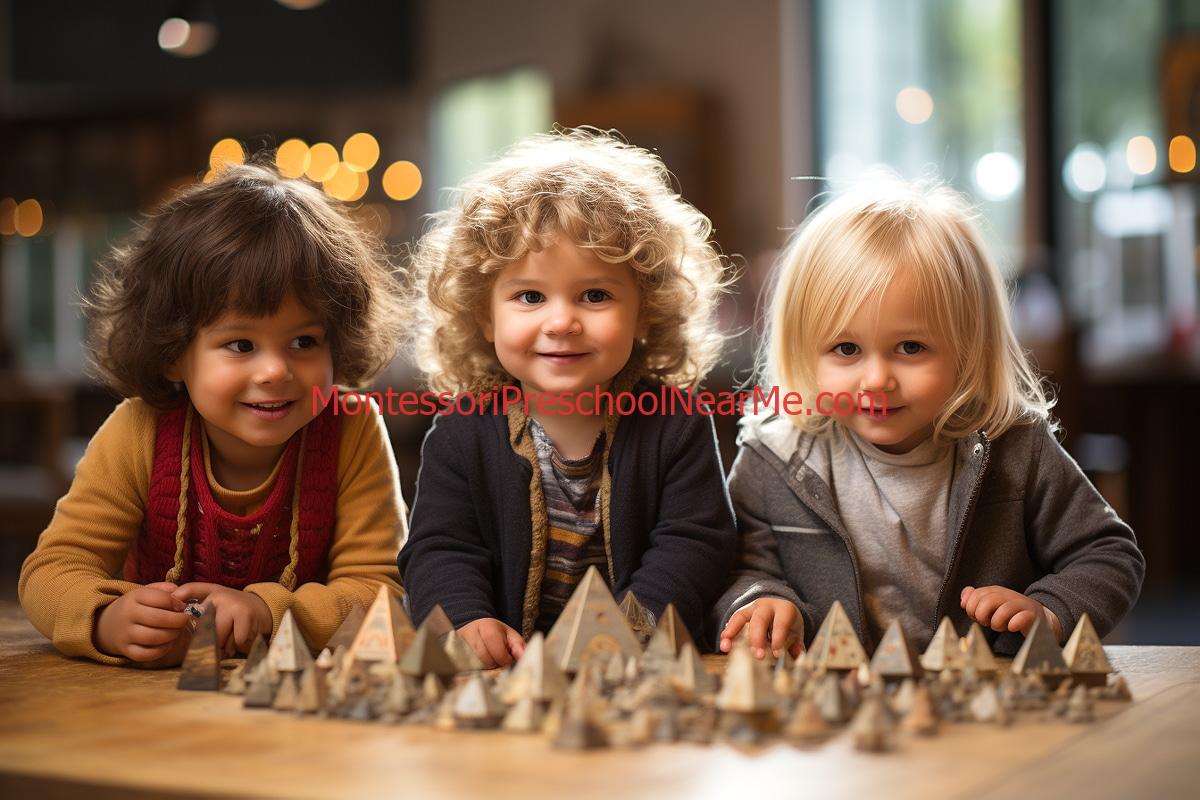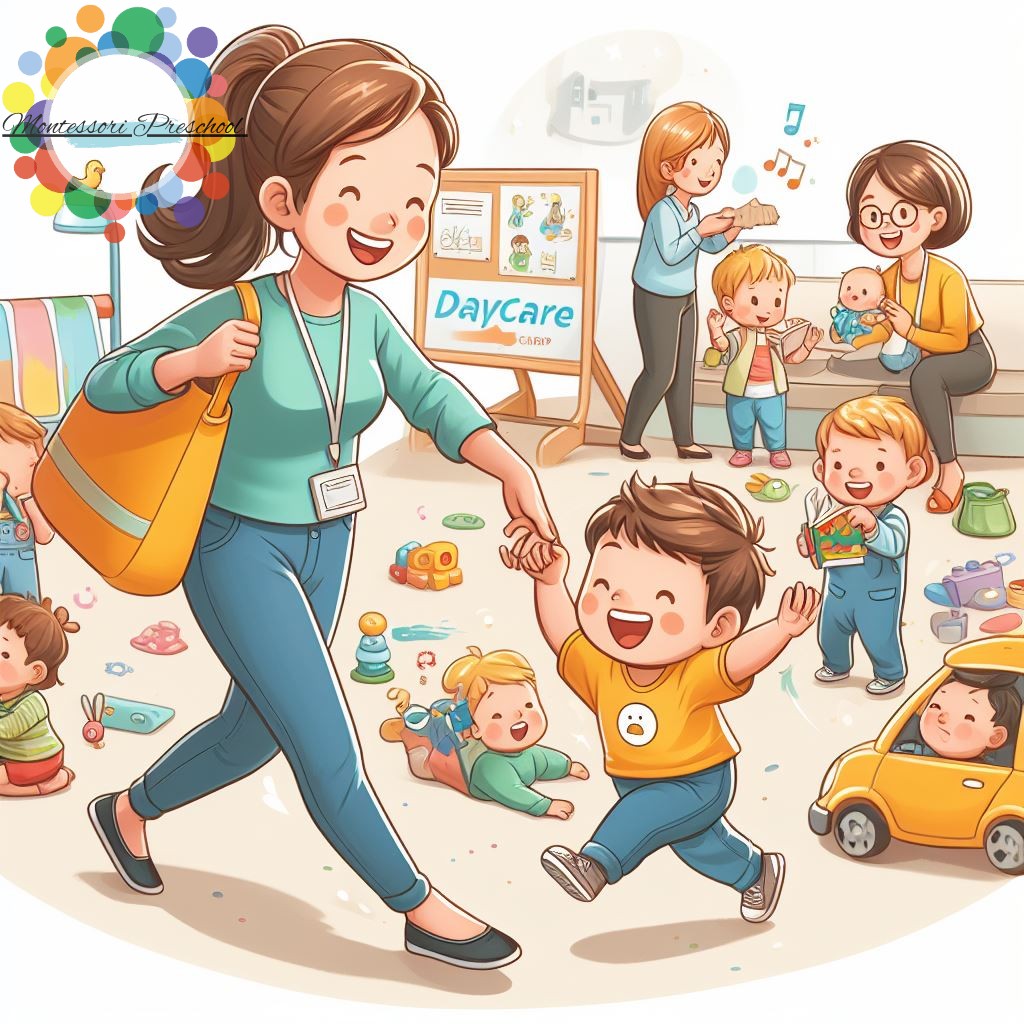
Welcome to “The Montessori Potential: Unlocking Independence, Respect, and Joy in Every Child,” a comprehensive and passionate book by Montessorian Paula Lillard Preschlack. Drawing on her 25+ years of experience, Preschlack shares valuable insights on the Montessori approach and how it benefits both individual children and society as a whole. Whether you’re new to Montessori or an experienced teacher, this article will provide inspiration and essential knowledge to explore the potential of Montessori education and say goodbye to traditional methods.
The Montessori Philosophy: A Brief Overview
Montessori education is a child-centered educational approach that values independence, respect, and the joy of learning. Developed by Dr. Maria Montessori in the early 20th century, this philosophy emphasizes hands-on learning, individualized education, and self-discipline. The Montessori method is anchored in the belief that children are naturally curious, capable, and eager to learn, and that the role of an educator is to nurture and guide their development.
Incorporating Montessori principles in the classroom creates an environment that fosters creativity, critical thinking, and a love for learning. Instead of rigidly adhering to traditional educational frameworks, Montessori education encourages children to take ownership of their learning and explore topics at their own pace and in their own unique ways.
The Importance of Independence in Montessori Education
Independence is a core element of Montessori education. Montessori classrooms are carefully designed to promote self-sufficiency and autonomy in children. From an early age, Montessori students learn to care for themselves, their environment, and their community. By engaging in practical life activities such as pouring their own drinks, preparing their snacks, and cleaning up after themselves, children develop essential life skills and a sense of responsibility.
In a Montessori classroom, students are encouraged to make choices and take responsibility for their learning. They have the freedom to select their own work and use materials specifically designed to develop their cognitive, social, emotional, and physical abilities. This emphasis on independence instills confidence, self-esteem, and a love for learning in children.
Respecting the Child: A Fundamental Principle
Respect for the child is a fundamental principle of Montessori education. Montessori educators view children as capable individuals who deserve to be treated with dignity and respect. This principle guides all interactions between educators and students, creating an environment that fosters positive relationships and mutual understanding.
In a Montessori classroom, educators observe and listen attentively to the child, recognizing their unique interests, strengths, and challenges. By acknowledging and valuing each child’s individuality, Montessori educators create a safe and nurturing space where children can thrive. This emphasis on respect lays the foundation for healthy social relationships and lifelong learning.
Fostering Joy and Curiosity in Montessori Classrooms
Joy and curiosity are integral components of the Montessori approach. Driven by their natural inclination to explore and discover, Montessori students engage in hands-on activities that spark their curiosity and cultivate a love for learning.
Montessori classrooms are rich learning environments equipped with meticulously designed materials that encourage students to actively explore concepts and ideas. These materials, combined with the freedom of choice and movement, enable children to follow their passions, make meaningful connections, and experience the joy of learning.
Montessori Education: A Bridge to a Better Society
Montessori education extends beyond the development of individual children; it aims to build a better society. Montessori classrooms are microcosms of diverse communities where children learn to interact and collaborate with respect and compassion. By focusing on peace education, Montessori fosters the development of responsible global citizens who are equipped to address complex social and environmental challenges.
The Montessori methodology also emphasizes the holistic development of the child, nurturing their cognitive, social, emotional, and physical well-being. This comprehensive approach prepares children to navigate the complexities of life, make informed decisions, and contribute positively to society.
Supporting Individual Development Through the Montessori Approach
Montessori education recognizes that each child is unique and progresses at their own pace. The Montessori approach supports individual development by providing a carefully prepared environment and personalized learning experiences.
In a Montessori classroom, students engage in self-directed learning, choosing activities that align with their interests and developmental needs. Educators act as guides, observing and assessing each child’s progress and providing the necessary support and guidance. By tailoring education to the individual, Montessori education empowers children to reach their full potential.
Montessori Materials: Tools for Learning and Growth
Montessori materials are an essential component of the Montessori approach. These carefully designed tools enable children to explore abstract concepts through concrete, hands-on experiences. Montessori materials are specifically created to support the development of various skills, including fine and gross motor skills, sensory perception, numeracy, literacy, and problem-solving abilities.
The Montessori materials are self-correcting, allowing children to independently identify and correct their mistakes. This empowers students to take ownership of their learning, develop critical thinking skills, and build confidence in their abilities. Montessori materials are thoughtfully arranged on open shelves, inviting children to select and work with materials that capture their interest and challenge their understanding.
The Role of the Montessori Teacher: Facilitator of Learning
In a Montessori classroom, the role of the teacher is that of a facilitator, guide, and observer. Montessori educators create a prepared environment that meets the diverse needs of the students and models respect, curiosity, and a love for learning.
The Montessori teacher carefully observes each child, noting their interests, strengths, and areas for growth. Based on these observations, the educator provides individualized guidance and support to foster the child’s development. Montessori educators are trained to recognize and respond to the intrinsic motivations of each child, nurturing their natural curiosity and love for learning.
Preparing the Montessori Environment for Success
The Montessori classroom environment plays a crucial role in supporting the child’s learning and development. Montessori educators meticulously arrange the classroom to promote independence, engagement, and a sense of belonging. The environment is carefully prepared with age-appropriate materials that reflect the child’s developmental needs and interests.
In a Montessori classroom, materials are displayed on open shelves, enabling students to freely select and work with the materials of their choice. The environment is organized into various learning areas, such as practical life, sensorial, mathematics, language, and cultural. Each area is thoughtfully arranged to encourage exploration, discovery, and the development of specific skills.
The Role of Parents in Montessori Education
Parents play a vital role in supporting their child’s Montessori education. The partnership between parents and educators is essential for creating a cohesive and nurturing learning environment. Montessori educators actively involve parents in their child’s educational journey, fostering open communication and collaboration.
Parents can support their child’s Montessori education by embracing the principles and practices of Montessori at home. This includes creating a prepared environment, encouraging independence and self-care, and providing opportunities for exploration and discovery. By aligning home and school practices, parents can reinforce their child’s learning and promote a seamless transition between the two environments.
The Benefits of a Multisensory Approach in Montessori
Montessori education utilizes a multisensory approach to engage students fully in their learning. By incorporating various senses, such as touch, sight, hearing, and movement, into the learning experience, Montessori educators create opportunities for deeper understanding and retention of knowledge.
In a Montessori classroom, students engage with materials that stimulate multiple senses. For example, the sandpaper letters encourage tactile exploration of the alphabet, while the pink tower fosters visual and spatial perception. By engaging multiple senses simultaneously, Montessori education creates enriched learning experiences that cater to diverse learning styles and enhance overall comprehension.
Montessori for Students with Special Needs
Montessori education has proven to be beneficial for students with special needs. The Montessori approach acknowledges and celebrates the uniqueness of each child, providing individualized support and opportunities for growth.
Montessori classrooms offer a flexible and inclusive learning environment that can be adapted to meet the specific needs of students with diverse abilities. By focusing on hands-on learning and providing materials that support various learning styles, Montessori educators empower students with special needs to develop their skills, independence, and self-confidence.
Montessori in Public Schools: Success Stories and Challenges
Montessori education is increasingly being integrated into public school systems worldwide. Many public schools have embraced the Montessori philosophy and methodology, recognizing its potential to enhance student engagement, academic achievement, and overall well-being.
Success stories of Montessori in public schools abound, with numerous students thriving in these environments. However, the implementation of Montessori in public schools also presents unique challenges. Adapting the Montessori approach to larger class sizes, standardized testing requirements, and limited resources requires careful planning and collaboration between educators, administrators, and policymakers.
Montessori Training: Becoming a Certified Montessori Educator
Becoming a certified Montessori educator requires specialized training and deep understanding of the Montessori philosophy and methods. Montessori training programs offer comprehensive coursework and hands-on experience to equip educators with the necessary skills and knowledge to create effective Montessori learning environments.
Montessori training programs vary in length and intensity, with programs available for different levels of education, from infant and toddler through elementary and beyond. These programs typically include theoretical foundations of Montessori education, observations of Montessori classrooms, supervised practice teaching, and comprehensive assessments.
The Global Spread of Montessori Education
Montessori education has experienced significant global growth and recognition in recent decades. From its humble beginnings, the Montessori approach has reached every corner of the world, with Montessori schools and programs established in diverse communities.
The global spread of Montessori education can be attributed to its evidence-based success, adaptability to different cultural contexts, and the dedication of passionate educators and advocates. Today, Montessori education continues to grow, evolve, and positively impact the lives of children worldwide.
Montessori vs. Traditional Education: A Closer Look
Comparing Montessori education to traditional education reveals significant differences in philosophy, methodology, and outcomes. Montessori education prioritizes individualized learning, hands-on experiences, and the cultivation of a love for learning, while traditional education tends to focus on conformity, standardized curriculum, and teacher-led instruction.
While traditional education often applies a one-size-fits-all approach, Montessori education recognizes and celebrates the unique abilities, interests, and learning styles of each child. Additionally, Montessori classrooms promote independence, critical thinking, and collaborative learning, whereas traditional classrooms often prioritize obedience, compliance, and rote memorization.
Criticisms and Misconceptions Surrounding Montessori
Despite its extensive research base and widespread success, Montessori education has faced criticisms and misconceptions over the years. Some critics argue that Montessori classrooms lack structure and discipline, while others question the effectiveness of mixed-age classroom environments.
It is important to acknowledge and address these criticisms to foster a better understanding of the Montessori approach. By providing evidence-based research, sharing success stories, and dispelling misconceptions, Montessori educators can advocate for the value and impact of Montessori education.
Montessori Education and Standardized Testing: Navigating the Landscape
Montessori education places value on holistic development and individualized learning, which may diverge from the emphasis on standardized testing prevalent in traditional education. While standardized testing can provide certain insights into student performance, it does not fully capture the breadth of skills, abilities, and potential that Montessori education aims to cultivate.
Navigating the landscape of standardized testing within the context of Montessori education requires careful consideration and balance. Montessori educators, administrators, and parents can work together to ensure that assessment practices align with the philosophy and goals of Montessori education, while still addressing external requirements.
Montessori at Home: Incorporating Montessori Principles into Daily Life
Montessori principles extend beyond the classroom and can be incorporated into daily life at home. By embracing the Montessori approach, parents can create a nurturing environment that supports their child’s independence, curiosity, and love for learning.
At home, parents can provide age-appropriate materials that promote exploration and discovery, establish routines that foster independence in daily activities, and encourage the development of practical life skills. By incorporating Montessori principles into daily life, parents can create a seamless transition between home and school, reinforcing their child’s Montessori education.
Cultivating a Love for Nature Through Montessori
Montessori education is deeply interconnected with nature, reflecting Dr. Maria Montessori’s belief in the importance of fostering a strong connection with the natural world. Montessori classrooms incorporate nature-based activities, such as gardening, nature walks, and observations of the natural environment, to instill in children a love and respect for nature.
By fostering a deep appreciation for the natural world, Montessori education nurtures environmental stewardship and a sense of responsibility toward the planet. The integration of nature-based learning experiences also provides children with opportunities for sensory exploration, creativity, and a deeper understanding of the interrelatedness of all living things.
Montessori Education and Peace Education: What’s the Connection?
Peace education is a central element of Montessori education. Dr. Maria Montessori believed in the power of education to promote peace and believed that peace began with the child. Montessori classrooms consciously cultivate a peaceful and harmonious environment where conflict resolution, empathy, and respectful communication are valued.
The Montessori approach to peace education involves the development of social-emotional skills, conflict resolution strategies, and a deep understanding of the interconnectedness of all human beings. By fostering a sense of empathy, compassion, and understanding, Montessori education contributes to the creation of a more peaceful and just society.
The Impact of Montessori Education on Social and Emotional Development
Montessori education has a significant impact on the social and emotional development of children. The emphasis on community, collaboration, and respect in Montessori classrooms cultivates essential social and emotional skills that lay the foundation for lifelong success.
In a Montessori classroom, students learn to engage in positive social interactions, resolve conflicts, and respect the rights of others. They develop a sense of responsibility toward their community and actively contribute to its well-being. The focus on independence and self-regulation also supports the development of emotional resilience, self-esteem, and a positive self-identity.
Montessori Schools and Cultural Diversity: Creating Inclusive Environments
Montessori schools are committed to creating inclusive and culturally diverse environments that celebrate the uniqueness of each child. Montessori education recognizes and values the diverse cultural backgrounds, languages, and experiences that children bring to the classroom.
Through multicultural materials, celebrations of different cultures, and intentional curriculum design, Montessori classrooms foster an appreciation for diversity and promote cross-cultural understanding. The Montessori approach supports the development of cultural competence, empathy, and a global perspective in children, preparing them to thrive in an increasingly interconnected world.
Montessori and Technology: Finding a Balance
Technology plays an increasingly prominent role in modern society, raising questions about its place in Montessori education. While Montessori classrooms traditionally minimize the use of technology, some educators recognize the potential benefits of carefully integrating technology in a way that aligns with Montessori principles.
Finding a balance between Montessori education and technology involves thoughtful consideration of the goals of both approaches. Technology can be used as a tool to enhance learning experiences, facilitate research, and connect children with diverse perspectives. However, it is essential to maintain a focus on hands-on exploration, independence, and the development of real-world skills that are central to Montessori education.
Montessori Education Beyond Early Childhood: Primary and Secondary Levels
While Montessori education is often associated with early childhood education, Montessori principles can be extended to primary and secondary levels. Montessori elementary and secondary schools build upon the foundations laid during the early years, providing a continued emphasis on hands-on learning, individualized education, and nurturing the whole child.
At the primary and secondary levels, Montessori education incorporates increasingly complex and abstract concepts while maintaining a focus on active learning and self-discovery. Montessori students continue to develop their independence, critical thinking skills, and social-emotional competence, prepared to navigate the challenges and opportunities of higher education and adulthood.
Montessori Colleges and Universities: Higher Education with a Montessori Foundation
Montessori principles can be extended to higher education through the establishment of Montessori-inspired colleges and universities. These institutions embrace the core tenets of Montessori education, providing higher education experiences that reflect the values of independence, self-directed learning, and holistic development.
Montessori colleges and universities prioritize active learning, interdisciplinary studies, and personalized education. These institutions value the unique abilities, interests, and voices of each student, fostering a transformative higher education experience that prepares graduates to make meaningful contributions to their communities and the world.
Montessori in the Workplace: Applying Montessori Principles to Professional Settings
The principles of Montessori education can be applied beyond educational settings to professional environments. Montessori-inspired workplaces embrace principles such as autonomy, collaboration, continuous learning, and respect for diversity.
By applying Montessori principles in the workplace, organizations can create empowering and inclusive environments that nurture the growth and development of employees. These principles support employee engagement, innovative thinking, and the creation of positive workplace cultures that value individual contributions and foster collaboration.
Montessori and Democratic Education: Common Threads and Differences
Montessori education and democratic education share common goals, such as empowering individuals and fostering social responsibility. Both approaches prioritize active learning, mutual respect, and the development of critical thinking skills.
However, while democratic education emphasizes collective decision-making and the pursuit of social justice, Montessori education focuses on individualized education and the holistic development of the child. Understanding the commonalities and distinctions between Montessori and democratic education enables educators to integrate complementary practices and create transformative learning environments.
Montessori Education and Empathy: Nurturing Compassionate Individuals
Empathy is a crucial outcome of Montessori education. Through the cultivation of respect, collaboration, and understanding, Montessori classrooms provide a fertile ground for the development of empathy in children.
In a Montessori classroom, students learn to recognize and respect the feelings and perspectives of others. They engage in collaborative activities that foster empathy and understanding, such as group projects and conflict resolution exercises. By nurturing empathy, Montessori education plays a vital role in creating compassionate individuals who are equipped to make positive contributions to society.
Montessori Education for the 21st Century: Adapting to Changing Times
Montessori education continues to evolve and adapt to the demands and opportunities of the 21st century. Educators are exploring innovative ways to integrate technology, promote sustainability, address global challenges, and ensure that Montessori education remains relevant and impactful.
By embracing evidence-based research, engaging in professional development, and fostering collaboration among educators, Montessori education will continue to thrive and positively impact the lives of children and communities worldwide.
Conclusion
“The Montessori Potential: Unlocking Independence, Respect, and Joy in Every Child” offers valuable insights into the transformative power of Montessori education. Through its emphasis on independence, respect, and joy, Montessori education nurtures the potential of each child and fosters a love for learning that extends beyond the classroom. Whether you’re new to Montessori or an experienced educator, this comprehensive book provides inspiration and knowledge to embark on a journey that embraces the potential of Montessori education and celebrates the unique abilities of every child. Say goodbye to traditional education and explore the Montessori potential today!



